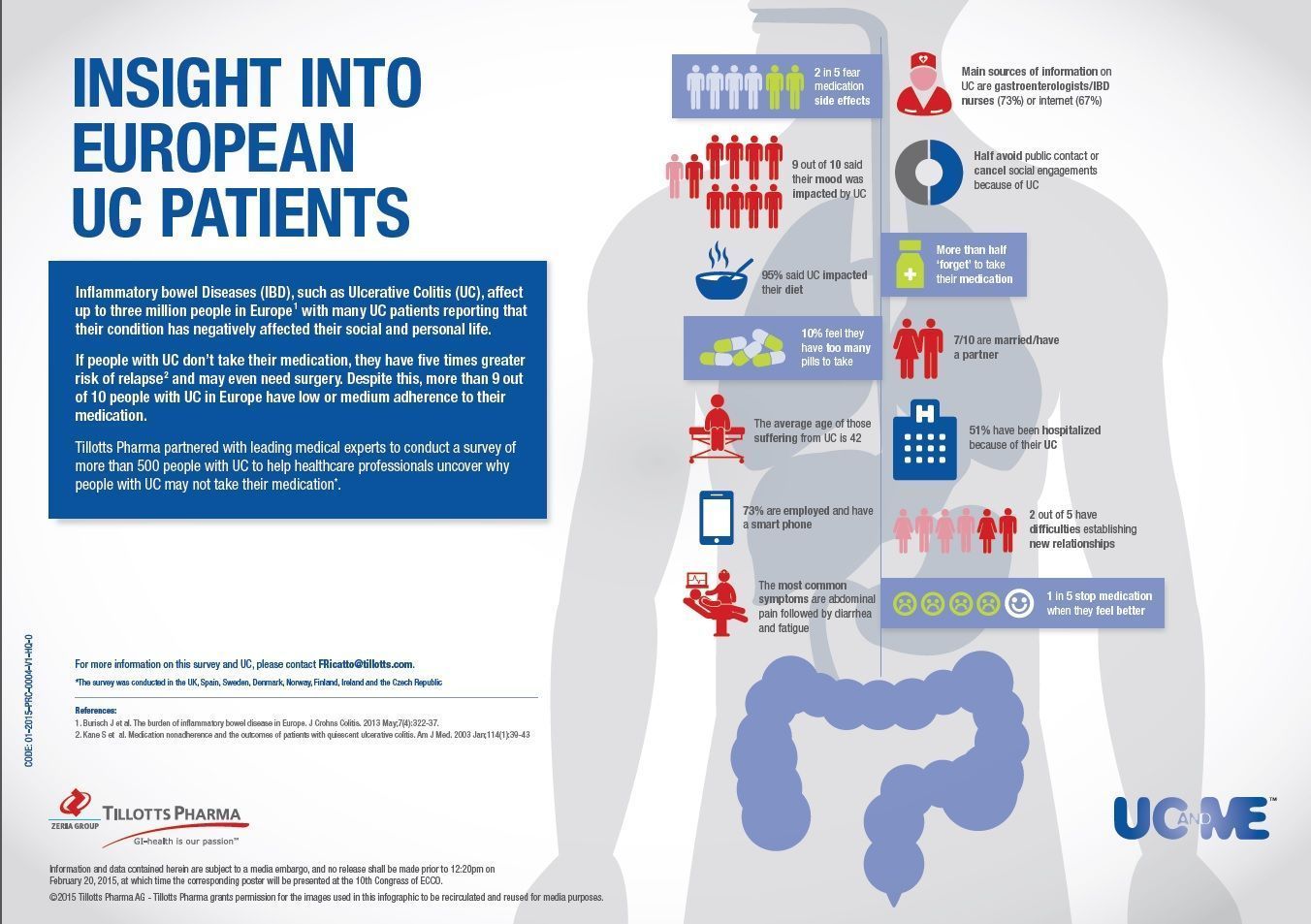 More than 90% of the patients who suffer from ulcerative colitis in Europe have either low or medium adherence to their medication, which increases patients’ probability of suffering relapses up to five times. These conclusions are from a survey recently conducted and reported by the company Tillotts Pharma and presented at the 10th Congress of the European Crohn’s and Colitis Organization (ECCO) in Barcelona, Spain.
More than 90% of the patients who suffer from ulcerative colitis in Europe have either low or medium adherence to their medication, which increases patients’ probability of suffering relapses up to five times. These conclusions are from a survey recently conducted and reported by the company Tillotts Pharma and presented at the 10th Congress of the European Crohn’s and Colitis Organization (ECCO) in Barcelona, Spain.
The survey was conducted by the company to understand how European patients are dealing with ulcerative colitis, one of the two types of inflammatory bowel disease (IBD) estimated to affect about three million people across Europe. The study included 507 UC patients, as well as 27 healthcare professionals located in the UK, Spain, Sweden, Norway, Finland, Denmark, Ireland and the Czech Republic.
Within the survey, about nine in every 10 patients reported to have moderate or low medication adherence, and the majority of the participants said the disease negatively and significantly affected both their social and personal lives. There are several different reasons that can explain lower medication adherence. About half of the physicians inquired said they believe it to be related to forgetfulness, 21% related low adherence with patients feeling better and discarding the medication, and 19% with fear of the side effects.
“Tillotts is committed to partnering with healthcare professionals to provide support, beyond medication, that can help to improve outcomes for the millions of people with gastrointestinal diseases,” added the chief operations officer and member of the executive committee at Tillotts Pharma, Mattias Norrman. The majority of the physicians included in the survey believe that understanding patients’ needs and concerns can help in the management of the disease.
The European survey was conducted in order to prepare the launch of the company’s toolbox, called UCandMe, which was developed in collaboration with a scientific committee of medical specialists with the purpose of strengthening knowledge and medication adherence among the gastroenterology community. In addition to knowing the symptoms associated with UC, including abdominal pain or diarrhea, the company aims to provide a way of identifying and effectively addressing individual needs.
“If left untreated, UC can deteriorate over time, leading to an increased severity of symptoms, more frequent relapses, and possibly surgery,” said the chair of the UCandME scientific committee and head of the IBD unit at Nancy University Hospital, in France, professor Laurent Peyrin-Biroulet. “UCandME™ provides an incredibly valuable toolbox, which can help us offer patients the education they need to achieve better results in UC management.”
The novel tool is comprised of a series of digital and physical resources, such as a questionnaire focused on the needs and concerns from patients, as well as an educational pack to be handed out to patients. After being launched globally during the ECCO 2015, Tillotts Pharma is expecting to bring it to European markets beginning this year.


